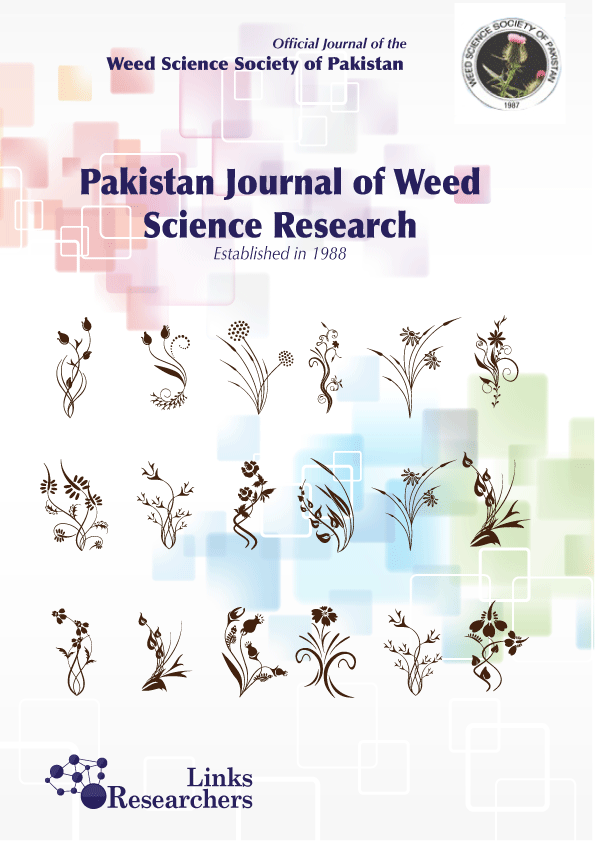THYMUS SERPYLLUM – A NOVEL BIOCONTROL AGENT AGAINST LEAF SPOT PATHOGENS OF SOLANUM MELONGENA
THYMUS SERPYLLUM – A NOVEL BIOCONTROL AGENT AGAINST LEAF SPOT PATHOGENS OF SOLANUM MELONGENA
Shazia Shafique1, Sobiya Shafique1 and Sonia Sahar1
ABSTRACT
Solanum melongena L. production is facing a lot of threats in Pakistan which are responsible for its low productivity. Like many other diseases; leaf spot is very important due to its significant yield losses. Therefore, control of this disease is obligatory to reduce the causal agent lower than commercial thresh hold level. Biological control provides safe fungal management program. Presently, the research was under taken to ascertain the antitoxic effect of Thymus serpyllum against eggplant leaf spot pathogens i.e., Exserohilum rostratum, Cladosporium cladosporioides and Curvularia clavata. For this, 10 concentrations of methanolic extract of plant (0.5% to 5%) were employed against the pathogens. Data analysis depicted that development of all the pathogens was greatly inhibited by all the concentrations while 5% concentration found to be the utmost operative in subduing the growth of all the pathogens. Curvularia clavata was found to be the most susceptible among all the pathogens. In pot trials, protective assays proved more pronounced in controlling the disease. The work concludes that organic extract of T. serpyllum has stable compounds which have the ability to inhibit the damaging properties of pathogens. This fact guides towards biocontrol using such plants against the phytopathogens in a vast range. The study can be extended to isolate and purify the compounds and its production on commercial scale to manage these pathogens in field conditions.
To share on other social networks, click on any share button. What are these?




